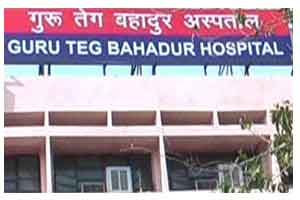- Home
- Medical news & Guidelines
- Anesthesiology
- Cardiology and CTVS
- Critical Care
- Dentistry
- Dermatology
- Diabetes and Endocrinology
- ENT
- Gastroenterology
- Medicine
- Nephrology
- Neurology
- Obstretics-Gynaecology
- Oncology
- Ophthalmology
- Orthopaedics
- Pediatrics-Neonatology
- Psychiatry
- Pulmonology
- Radiology
- Surgery
- Urology
- Laboratory Medicine
- Diet
- Nursing
- Paramedical
- Physiotherapy
- Health news
- Fact Check
- Bone Health Fact Check
- Brain Health Fact Check
- Cancer Related Fact Check
- Child Care Fact Check
- Dental and oral health fact check
- Diabetes and metabolic health fact check
- Diet and Nutrition Fact Check
- Eye and ENT Care Fact Check
- Fitness fact check
- Gut health fact check
- Heart health fact check
- Kidney health fact check
- Medical education fact check
- Men's health fact check
- Respiratory fact check
- Skin and hair care fact check
- Vaccine and Immunization fact check
- Women's health fact check
- AYUSH
- State News
- Andaman and Nicobar Islands
- Andhra Pradesh
- Arunachal Pradesh
- Assam
- Bihar
- Chandigarh
- Chattisgarh
- Dadra and Nagar Haveli
- Daman and Diu
- Delhi
- Goa
- Gujarat
- Haryana
- Himachal Pradesh
- Jammu & Kashmir
- Jharkhand
- Karnataka
- Kerala
- Ladakh
- Lakshadweep
- Madhya Pradesh
- Maharashtra
- Manipur
- Meghalaya
- Mizoram
- Nagaland
- Odisha
- Puducherry
- Punjab
- Rajasthan
- Sikkim
- Tamil Nadu
- Telangana
- Tripura
- Uttar Pradesh
- Uttrakhand
- West Bengal
- Medical Education
- Industry
GTB Hospital studying impact of air pollution on foetus

New Delhi: While the adverse impact of air pollution on respiratory illness in widely researched, recent researches point out that it may not just lead to respiratory problems, but could also be a leading cause of premature delivery and low birth rate. To determine the causal relationship between the two, Guru Teg Bahadur Hospital(GTB Hospital), Delhi, is conducting a research to study the impact of befouled air on foetus.
"It has been seen that exposure of pregnant women to the high level of air pollution sometimes leads to premature delivery or affects the birth rate as well. It is not yet substantiated, however, that pollution will cause any type of congenital malformation. The result of the study will help us get a clearer picture," Kiran Guleria, a gynaecologist at the GTB Hospital, told IANS.
She is a part of the research and working at the Department of Biochemistry in the city-based University College of Medical Sciences.
The research is a part of the study titled "DAPHNE" (Delhi Air Pollution Health And Effects), where the All-India Institute of Medical Sciences (AIIMS) is also doing a project related to the effect of pollution on children with respiratory problems.
"On pregnant women, we are trying to see how pollution might affect the unborn child. We are also trying to figure out the birth rate issue from this study owing to poor air quality," Dr Karan Madan, Associate Professor, Department of Pulmonary Medicine and Sleep Disorders, AIIMS, who is part of this research programme, told IANS.
Guleria said that the research primarily focuses on monitoring the foetus and the unborn child, which will involve observing the baby in the womb and mapping its growth.
"The study will help us understand and see the effect of pollution on the unborn child in terms of growth, respiratory problems like asthma or other allergies. After birth, the child will also be observed for two years," the health expert noted.
For the study, a belt has been developed that will be worn by women for 48 hours during each trimester of pregnancy. There will be a continuous mapping of the women involved in the project for 9 months.
"It will give a clear picture on the impact of pollution during different seasons as well. Simultaneously, we will collect blood and urine samples to understand it better. After the child is born, we will even examine the cord blood to see how much transition of air pollution has happened from the mother to child," Guleria added.
GTB Hospital has already started recruiting patients for the project. women aged between 20 and 35 with no other pregnancy complications have been approached by the research team.
Medical Dialogues Bureau consists of a team of passionate medical/scientific writers, led by doctors and healthcare researchers. Our team efforts to bring you updated and timely news about the important happenings of the medical and healthcare sector. Our editorial team can be reached at editorial@medicaldialogues.in.


